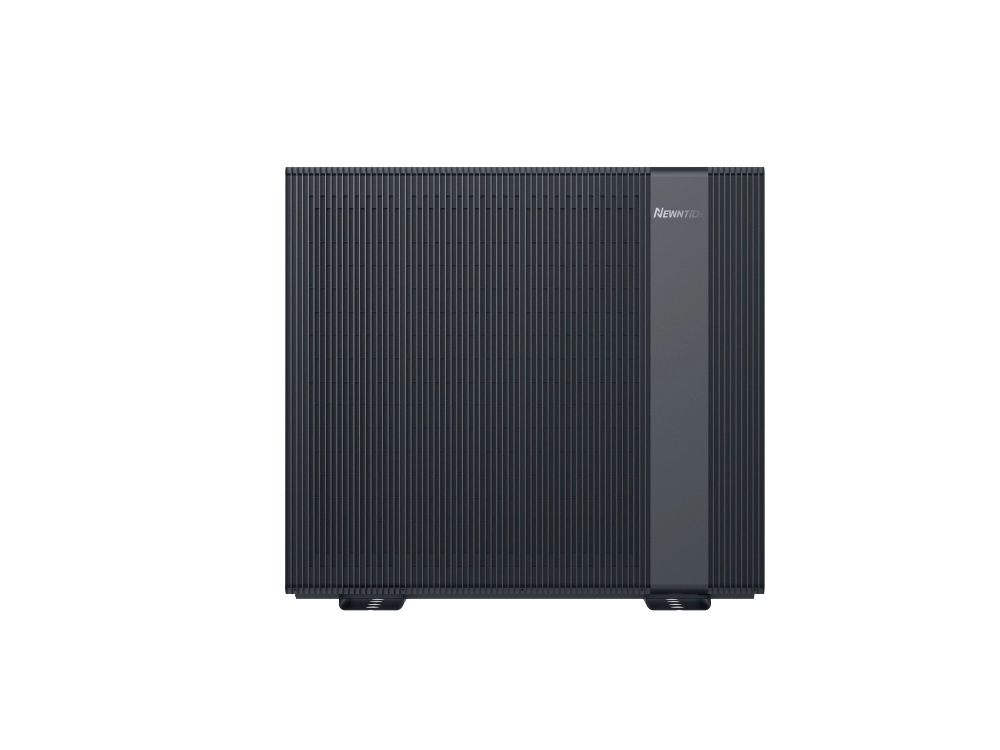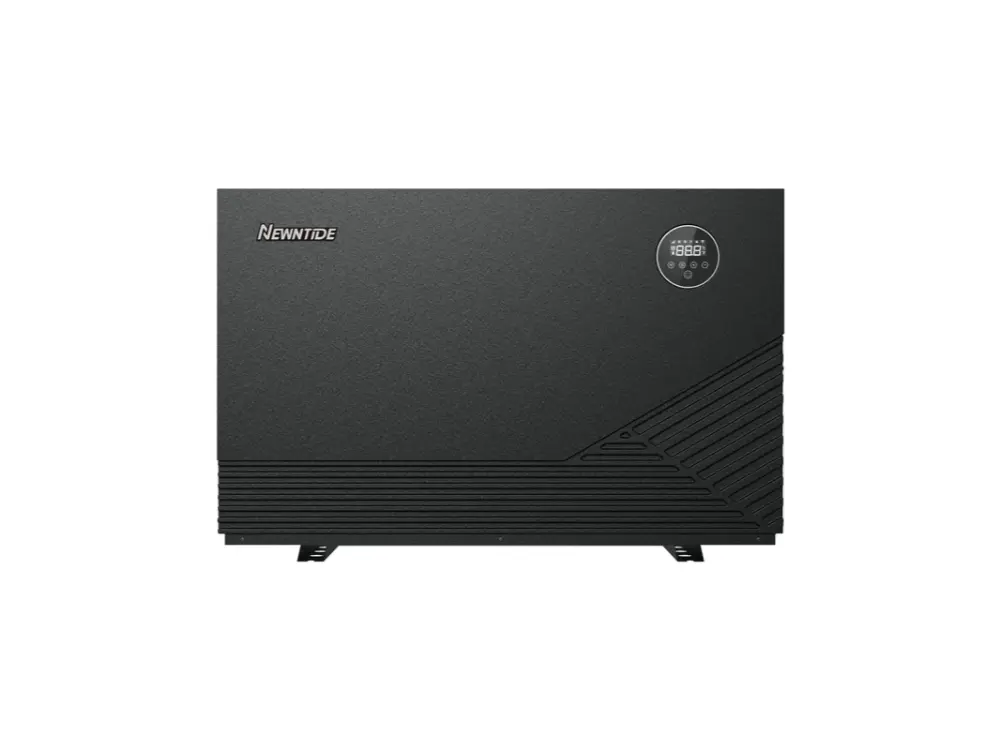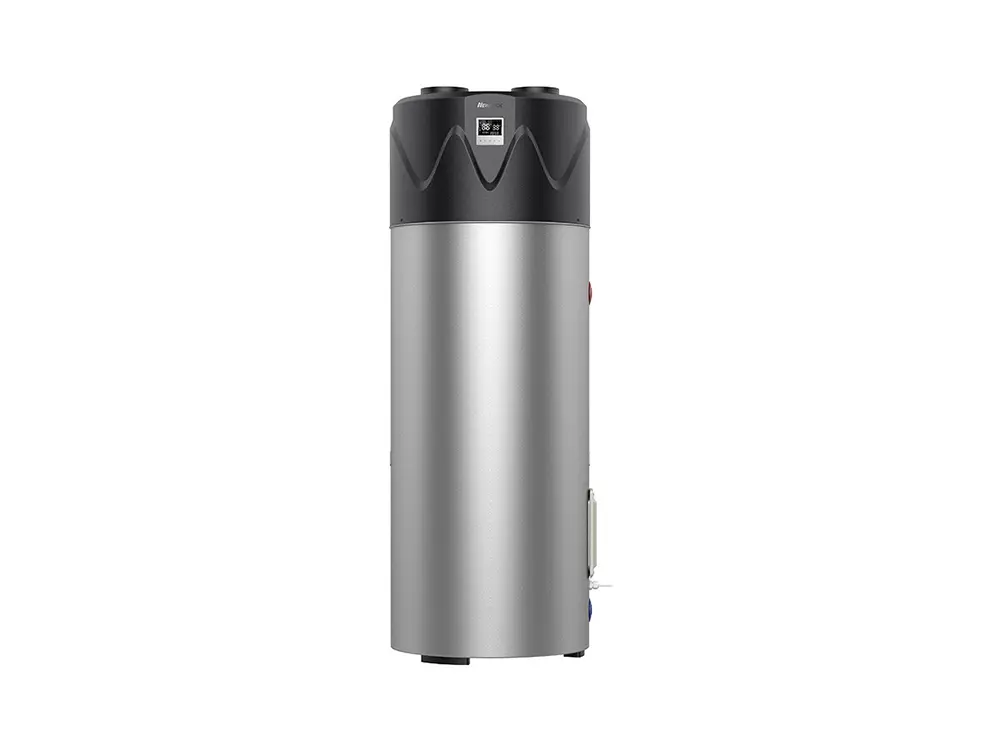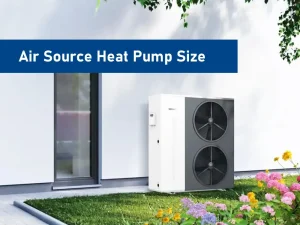Introduction
Doubtlessly, heat pumps are a sustainable and eco-friendly way of heating, hot water and cooling. Their air-source varieties are particularly exceptional alternatives to conventional systems like gas boilers.
Despite all the benefits air-source heat pumps provide, opting for one is not simple. You should determine the correct sizing of a heat pump. The motive is that one should deliver the best results for your household.
Here, we’ll provide noteworthy insights into determining the best air-source heat pump size. We’ll elaborate on common air-source heat pump sizes and explain why size matters here.
Finally, some inquiries about air-source heat pump sizes will be answered.
Common Air-Source Heat Pump Sizes
You may wonder precisely what an air-source heat pump’s size means. In simple terms, it refers to the device’s power output, which is measured in kilowatts (kW). Thus, it indicates how much energy the appliance will deliver to your household.
For instance, consider a heat pump with a 10kW rating. This implies it will deliver 10kW of heat (based on outdoor air temperature). The sizes of most air-heat pumps for sale range between 3kW and 16kW.
The more power output the device has, the more the system’s installation will cost. The more demanding your household’s heating necessities are, the more high-powered the device you need.
The following table shows the common heat pump sizes and types relating to household size. Estimated average costs for the heat pump installation are further shown for reference.
| Household size (number of bedrooms) | Approximate Household size (m²) | Heat Pump size | Heat Pump type | Average Expenses |
| 1 bedroom | 30 to 50 | 3kW | Air-to-air | Between £1500 to £4000 |
| 1 bedroom | 30 to 50 | 8kW | Air-to-water | Between £8400 to £11150 |
| 2-3 bedrooms | 80 to 110 | 4-5kW | Air-to-air | Between £4000 to £8400 |
| 2-3 bedrooms | 80 to 110 | 13kW | Air-to-water | Between £10000 to £12000 |
| 4-5 bedrooms | 120 to 300 | 10kW | Air-to-air | Between £6000 to £11000 |
| 4-5 bedrooms | 120 to 300 | 16kW | Air-to-water | Between £8000 to £14000 |
Note that the power output differs when discussing the device’s dimensions. Air-source heat pumps typically range between 100-150 centimeters high and 50-100 centimeters wide.
You should ensure ample space in your household to accommodate an air-source unit.
How do you calculate the size of the heat pump you need?
The air-source heat pump size calculation is typically more straight for newly-built properties. It’s because they have a more elevated degree of insulation. It’s a critical factor in heat pump sizing determination. You generally require a thorough building survey to evaluate heat loss for older properties.
Below is a calculator we have devised for air-source heat pump sizing. It concerns household size (number of bedrooms) and insulation levels (good or poor).
| Household Size (no. of bedrooms) | Insulation Level | Advisable Size of Air-Source Heat Pump |
| 2 bedrooms | Good | 4kW |
| 2 bedrooms | Poor | 6kW |
| 3 bedrooms | Good | 5kW |
| 3 bedrooms | Poor | 7.5kW |
| 4 bedrooms | Good | 10kW |
| 4 bedrooms | Poor | 15kW |
| 5+ bedrooms | Good | 16kW |
| 5+ bedrooms | Poor | 16kW |
Chances are your home can be well-insulated. Then, you can also determine air-source heat pump sizing using your energy requirements. The following table would also act as an air-source heat pump sizing calculator. It concerns the size of a well-insulated home and approximate yearly energy demand.
| Household size (well-insulated) | Approximate yearly energy demand | Advisable size of air-source heat pump |
| 1 bedroom | 8000 kWh | 3kW |
| 2 or 3 bedrooms | 12000 kWh | 4-5kW |
| 4 bedrooms | 17000 kWh | 10kW |
| 5 or more bedrooms | 21000 kWh | 16kW |
You may still be unsure about the ideal size of a heat pump. Then, your best approach would be to consult a certified heat pump installer. They’ll take into account some varying factors. The goal is to determine your household’s perfect air-source heat pump size.
Why is the Size of my Air-Source Heat Pump Important?
The size of your air-source heat pump is of pivotal significance. It’s due to the following reasons:
1. Comfort
The correct size ensures steady indoor temperatures and a suitable hot water supply. If the size is too small, you won’t achieve the output. That can leave you with a chilly household and cold tap water.
2. Efficiency
A right-sized heat pump will be functioning more efficiently. That will significantly help to lessen energy costs.
You’ll pay more to install a heat pump with a higher output than your needs. Furthermore, it will lead to higher expenses as the resources for its functioning are wasted.
3. Lifespan
A suitable heat pump size will lead to a longer device lifespan and less maintenance. If you choose a small heat pump, it can be overworked, putting the components under added pressure and damaging them.
A large-sized heat pump can operate in short cycles, which is adverse for the system. This implies that the device’s usual lifespan can be affected. You may have to replace it before its typical lifespan.
4. Noise Levels
The incorrect size of the heat pump can lead to increased noise levels and rapid degradation. This is particularly true if you select a small heat pump.
Thus, choosing the appropriate-sized heat pump is necessary. This way, you can meet your household requirements while avoiding overspending on energy expenses. Furthermore, you can maximize the renewable energy that heat pumps provide.
What Size Air-Source Heat Pump is Ideal for My House?
For a typical household around (100m²), a 5kW air-source heat pump is ideal. Going further, you can scale up to a 10kW air-source unit. It’s for a larger household (around 200m²).
As stated before, you should consider several factors before determining the best size. Here are some noteworthy ones:
1. Household size
As stated before, larger households necessitate larger-sized air-source units.
2. Insulation level of your household
Poorly insulated households necessitate a large-sized heat pump to make up for heat loss. Your home may not be properly insulated. Thus, it’s recommended that insulation improvements be made before heat pump installation.
3. Climate
You may live in a region with a colder climate. That necessitates a more powerful air-source heat pump. The aim is to make up for the lessened efficiency throughout the freezing temperatures.
4. Energy Consumption
Your household’s yearly energy demand can be greater. Thus, you need a larger air-source heat pump.
5. Your household’s heat delivery system
Heat pump sizing further depends on your home’s system of delivering heat. It implies the ways through which heat is emitted through your household. These include underfloor heating or radiators. Households with underfloor heating can be ideal for air-source heat pumps with lesser outputs.
If you have radiators, ensure they are larger for effective heat distribution. If you have radiators that are too small, they may not give adequate heating. It’s even if you opt for the right heat pump sizing.
Given all these factors, it’s worthwhile to approach a heat pump installation specialist. It’s a recommended way of calculating heat pump size to fulfill your household’s requirements.
Frequently Asked Questions
How do you determine the size of the heat pump you need?
You can refer to the heat pump size calculator in the form of tables earlier. They provide an estimate of the air-source heat pump sizing you should select.
It relies on factors like your household’s insulation level and living space size. It can also take into account your household’s approximate yearly energy demand.
A general principle is 5kW heat pump size per 100m² of living space. For a more accurate determination of heat pump sizing, consult an HVAC professional.
Is it worth it to oversize or undersize a heat pump?
It’s certainly not advisable to oversize or undersize a heat pump. Opting for the fitting heat pump size that fits your energy needs is best.
With an air-source unit that’s too large or small, you risk confronting some problems. It can have a marked impact on your expenses, especially.
A large-sized heat pump will cycle on and off too regularly. It leads to elevated energy expenses and greater wear and tear.
Let’s consider an undersized air-source heat pump. It will try harder to maintain your desired temperature, which will lead to elevated energy usage as it operates over time. Additionally, it may not provide heating correctly, especially during severe weather conditions.
How do I know if my existing heat pump is the proper size?
You can determine if your existing air-source unit is the right size. If it does, it must provide comfortable temperatures year-round. It must also meet your heating, hot water and cooling requirements.
It must not run excessively and cycle on/off recurrently. In addition, check other aspects like:
- the household size in square meters
- insulation level
- climate
- the size of your current heat pump (in kW)
Your existing heat pump must generally follow the rule of 5kW per 100m² of residential space. Act promptly if your energy bills are excessive or you witness noteworthy temperature fluctuations.
Your best choice is to approach an HVAC professional to analyze your prevailing system. This can also potentially lead to a recommendation of differing heat pump sizes.
What are the outcomes of picking an oversized heat pump?
Picking an oversized air-source unit can lead to the following consequences:
- It leads to higher upfront costs.
- It can be overly powerful for your household, leading to inefficiency.
- It can result in short cycling, i.e., the unit turns on and off rapidly.
- It can lead to a lessened system lifespan and greater wear and tear.
- It can lead to raised energy expenses.
- It can give rise to diminished comfort levels due to uneven temperature distribution.
- It necessitates more space for installation.
Does heat pump sizing affect noise levels?
A heat pump sizing can affect the HVAC system’s noise level.
For example, let’s consider an undersized air-source heat pump. You may see that such a system is overworking in maintaining your heating and cooling requirements. Thus, you may note elevated heat pump noise.
Thus, opting for the right heat pump size for your household is noteworthy. Yet, a boon is that the noise level of heat pumps is governed by law. It’s virtually in all European countries. The aim is to safeguard the general population and neighbors from noise pollution.
Also, note that modern heat pumps aren’t allowed to be very noisy. Many modern air-source heat pumps have a “Quiet Mark” certification, ensuring they generate minimal noise.
Conclusion
Hopefully, this air-source heat pump sizing guide will be handy for you. It would aid in picking the best air-source unit according to your household’s necessities.
We covered information like common air-source heat pump sizes. We also guided you in calculating the ideal size for your home.
When selecting an air-source heat pump size, be mindful of factors like:
- Your living space size
- Your household’s insulation level
- Climate
- Energy consumption
- Your household’s heat delivery system




